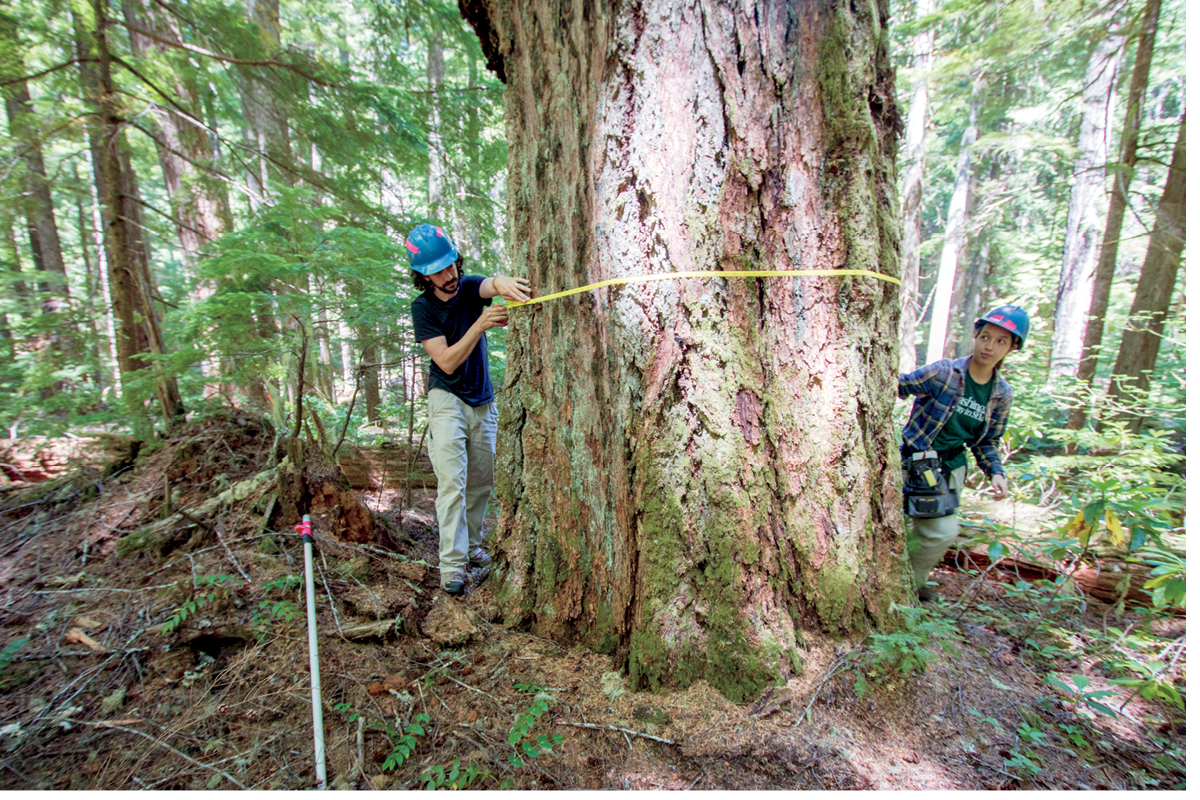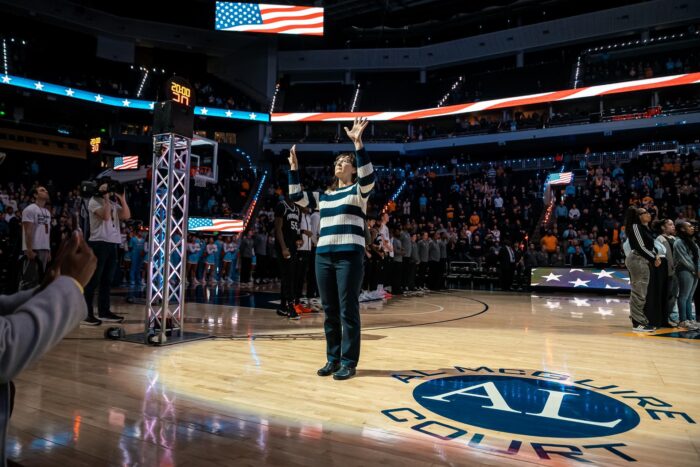Biology researcher and secondary school science teachers score a win-win by teaming up on climate change investigations.
In the lush Andrews Forest of Oregon, Dr. Joseph LaManna prepares for his newest research collaborators: high school teachers. Thanks to a recent grant from the National Science Foundation, LaManna and scholars in the Long-Term Ecological Research Network, or LTER, are poised to welcome cohorts of non-university educators over the next three years to research alongside them.
“We want to immerse these educators into our work and exchange fundamental knowledge of science and education,” says LaManna, assistant professor of biological sciences, whose research investigates climate change’s effects on biodiversity and biological relationships.
Starting in 2023, teachers will spend part of two summers at an LTER site in Oregon, California or Alaska. During their first summer, the educators will receive field research training and help collect key data for LaManna’s research for six weeks. Then the following summer they will return to their original site to train a new group of teachers.
LaManna explains that a team of LTER education specialists will work with teachers to create curricula for these educators based on their experiences in the program. He’s primarily recruiting educators from Milwaukee Public Schools, and says he’s interested in providing children from under-resourced areas with state-of-the-art science education through their teachers’ collaborations with his team.
“This really is a symbiotic, mutually beneficial relationship,” LaManna says. “The teachers become part of this incredible network, and we get help with our conservation efforts. Everyone wins.”




